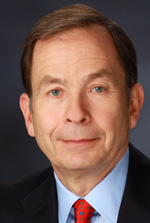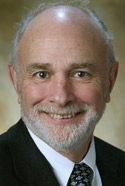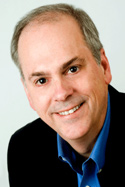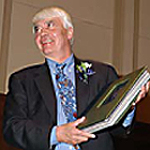Lawrence University graduate Anton “Tony” Valukas, the court-appointed examiner in the historic bankruptcy case of Lehman Brothers Holdings Inc., will be recognized by his alma mater with an honorary Doctor of Laws degree Sunday, June 10 at Lawrence’s 163rd commencement.
Valukas, chairman of the Chicago-based national law firm Jenner & Block, also will serve as the principal commencement speaker.

Valukas served as the United States Attorney for the Northern District of Illinois from 1985 to 1989. He is a fellow of the American College of Trial Lawyers. In 2009, Valukas was appointed by a federal judge as the examiner for the Lehman Brothers bankruptcy, the largest bankruptcy in United States history. As examiner, Valukas investigated the causes of the Lehman Brothers bankruptcy. After reviewing 34 million documents and interviewing nearly 300 witnesses, Valukas issued a seven-volume, 2,200 page report detailing potential wrongdoing by certain Lehman executives and Ernst & Young, the auditor.
Litigator of the Year
Last month, The American Lawyer named Valukas its 2011 “Litigator of the Year,” an honor that recognizes lawyers who have had “extraordinary results for their clients.” In its cover story, the magazine hailed Valukas as one of the “few heroes to emerge from the financial debacle of 2008.” It cited his 2,200-page, seven-volume Examiner’s Report as “a tour de force of truth-telling” and credited him with “untangling what caused a historic collapse that helped set off the broader financial crisis.” Bankruptcy Court Judge James Peck called Valukas’ report “the most outstanding piece of work ever produced by an examiner.”
Valukas has been named one of the country’s leading litigation lawyers for seven consecutive years by Chambers USA, while Chicago Lawyer honored him as its “Person of the Year” for 2009. Last year, the Anti-Defamation League recognized him with its First Amendment Freedom Award.
“Tony Valukas is a superb role model for our graduating students and should be a very interesting commencement speaker for the entire audience,” said Lawrence President Jill Beck. “Not only is he a distinguished and nationally respected legal expert, he is a humanitarian, a man with a strong social conscience. He demonstrates a balance in life between high professionalism and concern for society that our liberal arts graduates should see in action, so they might consider how to achieve this balance in their own ways in the coming years.”
Civil and Criminal Litigation
Specializing in civil and white collar criminal litigation, Valukas’ extensive experience includes consumer products litigation, product defect and consumer fraud class actions, food contamination, mass accident and environmental claims as well as defense work with accountants, real estate developers and corporate executives in high-profile matters.
Valukas is a frequent presenter to global business and legal leaders on the financial, ethical and legal challenges facing the country, has been the featured speaker at numerous American Bar Association programs and has been published extensively.
“I was surprised and delighted when I received a call from President Beck advising me that the university was going to award me an honorary degree,” said Valukas. “This award comes from an institution that I cherish and which was instrumental in shaping my life.
“So much of what I have become is attributable to the education and insights I gained while a student at Lawrence,” he added. “I remember the faculty with respect and genuine fondness. They profoundly shaped my view of the world and my commitment to the community. For Lawrence to award me this degree is both humbling and an extraordinary honor.”
After earning a bachelor’s degree in government at Lawrence in 1965, Valukas earned his J.D. from Northwestern University School of Law in 1968. He joined Jenner & Block in 1976 and was named the firm’s chairman in 2007.
About Lawrence University
Founded in 1847, Lawrence University uniquely integrates a college of liberal arts and sciences with a world-class conservatory of music, both devoted exclusively to undergraduate education. Ranked among America’s best colleges, it was selected for inclusion in the book “Colleges That Change Lives: 40 Schools That Will Change the Way You Think About College.” Individualized learning, the development of multiple interests and community engagement are central to the Lawrence experience. Lawrence draws its 1,445 students from 44 states and 35 countries.



